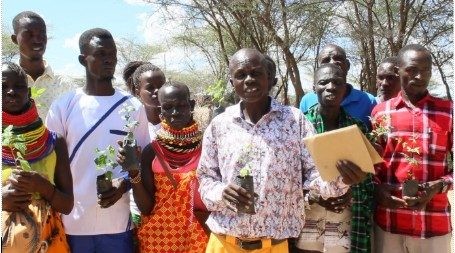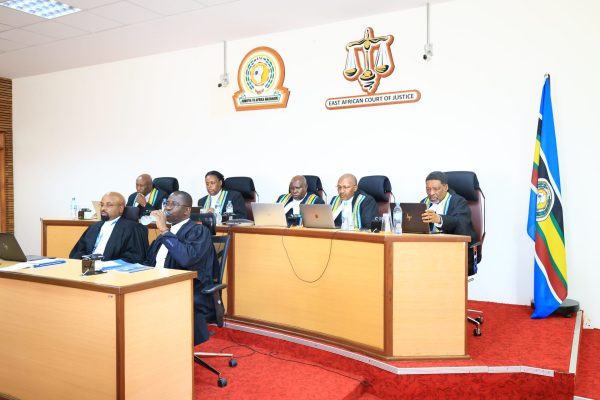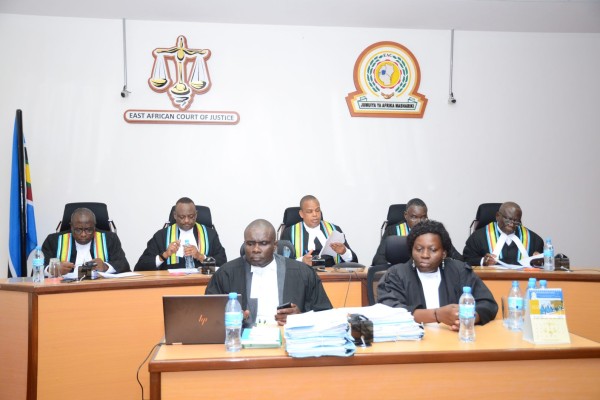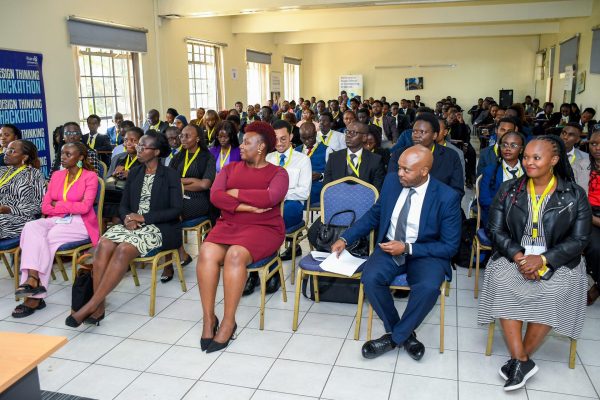Court Upholds Revocation of Lamu Coal Plant Licence
Today, 16 October 2025, the Environment and Land Court sitting in Malindi, Kenya, upheld the landmark 2019 decision of the National Environment Tribunal (NET), which revoked the Environmental Impact Assessment (EIA) license granted to Amu Power Company Ltd for the proposed 1,050 MW Lamu Coal Fire Power Plant.
The case, which was filed at the NET by Save Lamu supported by Natural Justice, Katiba Institute and the DeCOALonize campaign, challenged the National Environmental Management Authority’s (NEMA) decision to issue a license to Amu Power on the grounds that it violated constitutional and environmental rights, and failed to comply with Kenya’s environmental laws. Amu Power subsequently appealed the NET decision to the Environment and Land Court.
In a landmark judgement, Hon. Francis Njoroge upheld the NET’s ruling, while dismissing the appeal. It marks a historic victory for the people of Lamu, who have, for nearly a decade, defended their right to a clean and healthy environment, their cultural heritage, and their livelihoods against the threat of coal.
The Environment and Land Court reaffirmed that public participation, environmental protection, and respect for constitutional rights cannot be overlooked in the pursuit of unsustainable energy projects. The Court found that the public participation process was inadequate and failed to meaningfully include the voices of affected communities. The judgment reaffirmed the importance of the precautionary principle, emphasizing that courts must not hesitate to apply it in environmental decision-making.
The approval process was found to be procedurally flawed and in violation of Articles 42 and 69 of the Kenya Constitution, which guarantees the right to a clean and healthy environment and outlines the State’s obligation to protect it.
The Court deemed the Environmental Impact Assessment (EIA) report deficient, particularly in addressing mitigation measures for the ash pit and the project’s contribution to climate change. These omissions were inconsistent with the requirements of the Climate Change Act and the Environment Management and Coordination Act (EMCA).
While the Court did not examine every technical aspect of the project, it underscored that meaningful public participation is central to effective environmental governance and impact mitigation. Overall, the numerous procedural and substantive shortcomings in the public participation process rendered the EIA process fundamentally invalid.

Elizabeth Kariuki, Hub Director, Natural Justice, asserted that, “This decision reinforces Kenya’s constitutional commitment to environmental justice, public participation, and the rule of law. Development must never come at the expense of people’s health, culture, or environment. This victory belongs to the people of Lamu – every fisher, woman, and youth who stood up for Lamu and for future generations. Kenya’s future should be built on clean energy, community voices, and respect for the planet we all depend on.”
“Justice for Lamu is justice for the planet. This ruling demonstrates that when communities are heard, the law protects both people and nature,” stated Somo M. Somo, Chairperson of Save Lamu.
“Today’s judgment is monumental in Kenya’s environmental justice history. The Court has strongly affirmed that public participation and the precautionary principle in accordance with the Constitution and environmental laws is critical in the protection of the environment. This judgment reaffirms a people centered approach in environmental governance especially for the people of Lamu and Kenya in General.”, said Emily Kinama, Head of Strategic Litigation at Katiba Institute.
Save Lamu, Katiba Institute, and Natural Justice commend the judiciary for upholding the principles of environmental governance and recognizing that progress respects both people and planet.
As the world faces an escalating climate crisis, Kenya has reaffirmed its position as a regional leader in climate action by rejecting outdated and polluting energy pathways. We call upon the government to invest in renewable energy solutions that honour Kenya’s climate commitments and safeguard the well-being of present and future generations.
The struggle for climate justice continues, but today, Lamu has shown that organized communities can shape their destiny and inspire hope far beyond Kenya’s shores. This case now stands as a precedent in safeguarding Kenya’s transition towards clean, renewable, and sustainable energy.
“The Court’s affirmation that public participation and the precautionary principle are non-negotiable strengthens the foundation of environmental governance in Kenya. This judgment is not just about stopping a coal plant — it’s about affirming that communities matter, that their voices count, and that sustainable development must be rooted in justice. This is truly a landmark victory for the people of Lamu”, said Farida Aliwa, Executive Director, Natural Justice.
“This ruling has restored my faith and that of deCOALonize movement, in the rule of law and justice and has reminded us of the importance of the work that we do with and for communities. This ruling will set a precedent for Kenya and the rest of the world on how land and environmental justice can be secured for communities. Most importantly, this ruling renews our faith and energy in fighting for climate justice. However, there is need for continued vigilance to ensure that there is no coal energy in Kenya, Africa and the World. A big thank you to all our partners and a big win for all of humanity!” Doreen Onyango, DeCOALonize Campaign coordinator.
Lucien Limacher, Head of Programmes, Natural Justice, asserted that this was, “A huge collective effort and a deeply rewarding victory. This judgment is not only a win for the Lamu community, Save Lamu, Katiba, and Natural Justice, but also a galvanising moment for environmental jurisprudence in Kenya. The Court’s affirmation of the importance of public participation, constitutional rights, and the precautionary principle strengthens the foundations of environmental governance. It sends a powerful message that development cannot come at the expense of communities or the environment, reaffirming the role of courts in safeguarding both justice and sustainability.”
The Amu Power project, first approved in 2016, faced consistent opposition from Save Lamu and local communities due to its potential impacts on health, livelihoods, cultural heritage, and Lamu’s fragile ecosystems.
ENDS








